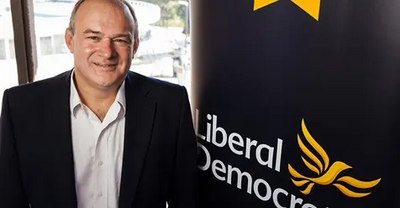In a leaked resolution drafted by the main political groups and due to be backed by MEPs next Wednesday, Johnson's administration is accused of creating "anxiety" in recent months.
The condemnation follows the comments of security minister Brandon Lewis, who threatened EU citizens with deportation from the UK if they do not apply for settled status before the deadline of 30 June 2021.
The minister later claimed that his comments had been taken out of context, raising concerns about what the parliament's political groups describe as "conflicting" announcements from Whitehall.
The parliament's resolution, obtained by the Guardian, further warns:
-
Without a "physical document" offering proof of their right to residency at the end of the transition period on 1 January 2021 there is an increased "risk of discrimination against EU27 citizens by prospective employers or landlords who may want to avoid the extra administrative burden of online verification, or erroneously fear they might place themselves in an unlawful situation".
-
The "limited geographical spread" of assistance offered to "older and vulnerable" EU citizens, including those who may have difficulty in using digital applications, needs addressing.
-
The application procedure that EU citizens go through should be dropped to ensure that there is a presumption that they will can retain their rights to live and work in the UK.
-
Johnson's decision to revise the withdrawal agreement bill to allow the independent monitoring authority, responsible for overseeing UK policies towards EU citizens, to delegate its powers to other bodies is concerning.
The parliament will also state that the level of free movement granted to EU citizens after Brexit should be a factor in deciding the "degree of future cooperation in other areas".
An unpublished letter from the EU's chief negotiator, Michel Barnier, to the Brexit secretary, Stephen Barclay, echoes the MEPs' fears, according to a copy seen by the Guardian. Barclay responds in correspondence by defending the UK's approach and seeking updates on the schemes being developed by the EU27 governments.
The details of the parliament's call to the Johnson administration comes ahead of a meeting between the European commission president, Ursula von der Leyen, and the British prime minister in Downing Street on Wednesday.
Sources close to Von der Leyen said she would seek to privately sketch out the potential pitfalls in the 11 months Johnson has set as the timeframe within which to agree a comprehensive deal.
But EU sources said the trip would be the first of a number of initiatives designed to move the Brexit negotiations into a more collaborative phase that avoids the clashes of the last three years.
"We do not want to do this negotiation in public, that is for sure," one senior EU official said.
When the EU's negotiating position is revealed in draft form in early February, before its formal adoption by the EU27 at a meeting of ministers on 25 February, it will only contain "headline principles" in order to avoid an early clash with the UK.
Johnson has said the UK will not align with EU rules after Brexit, while the EU is expected to make significant "level playing field" demands on the UK in exchange for a zero tariff, zero quotas trade deal.
But the detail of those demands are not expected to be stipulated in the negotiating mandate to avoid clashes when the talks start in earnest in early March.
It is understood, however, the demands will closely follow those contained in the agreement made between Theresa May's government and the EU over the operation of the shared customs territory envisioned in the original Northern Ireland backstop.
The EU will seek dynamic alignment with the bloc's state aid rules and the continuation in the UK's domestic law of the bloc's directives on the exchange of information on taxation, anti-tax avoidance rules and country-by-country reporting by credit institutions and investment firms.
The UK will be asked to reaffirm its commitment to curb harmful tax measures as defined in the EU code of conduct.
In the field of environmental standards, sources said the EU will "at the very least" seek a commitment from the British government that it will not lower the EU's existing environmental standards in key areas such as industrial emissions, air quality targets, nature and biodiversity protection and environmental impact assessments.
EU sources suggested that the French president, Emmanuel Macron, could push for a closer alignment to ensure the UK stays in line with Brussels as Von der Leyen pushes her new green deal.
The EU will also demand that the UK implements a system of carbon pricing that is as effective as the EU emission trading scheme for greenhouse emission allowances. The EU additionally wants non-regression clauses in the trade deal on labour and social protection standards.
The UK is expected to leave the EU on 31 January. The withdrawal agreement bill is returning to the Commons this week and will move to the House of Lords on Monday. It is expected to be on the statute books by the middle of the month and the European parliament will vote to ratify the deal on 29 January, according to a leaked draft agenda.
A Home Office spokesperson said: "We have already provided certainty to over 2 million people who have been granted status through the EU settlement scheme. Our scheme is free, there is plenty of support for applicants and, once the withdrawal agreement bill passes, EU citizens have until the end of June 2021 to apply.
"We have done far more than any other EU member state has done for British citizens, and it's time they adopted a similarly generous approach."<iframe id="google_osd_static_frame_2926941470977" style="width: 0px; height: 0px; display: none;" name="google_osd_static_frame"></iframe>
